Thirty European and North American leaders gathered in June in Madrid for a special summit of NATO (the North Atlantic Treaty Organization). Summits are not part of the yearly NATO agenda, and are only held on “important junctures in the Alliance’s decision-making process.”
An important juncture has indeed occurred – last February, Russian President Vladimir Putin launched an attack on Ukraine, and the war has been going on since, costing thousands of lives. While Ukraine isn’t a member of NATO, the country is considered an ally, and the Ukrainian government has repeatedly requested NATO’s help in the war, due to being outnumbered by the Russian army forces. While some members of NATO responded to the pleas with military and financial aid, NATO itself initially refused to do much more than supply “delivery of humanitarian and non-lethal aid”. the Ukrainian president has also called for tougher sanctions against Russia, but NATO declined due to fears of escalating the war with Russia beyond Ukraine’s borders. This policy has been criticized by many ever since the war started, but as it’s been going on for months, NATO might not have expected to draw so much hate on social networks.
They were wrong.
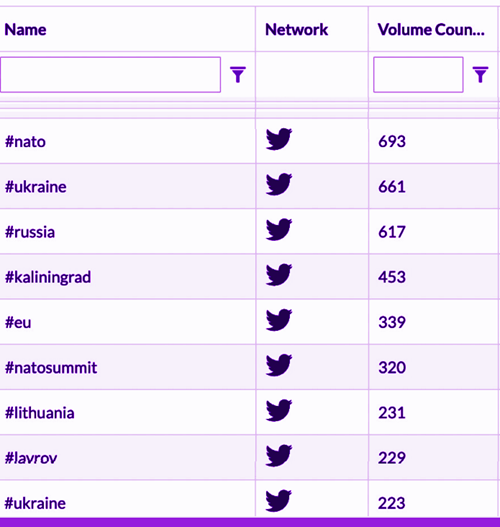
NATO Hate All-Around
In the week prior to the summit, Cyabra’s team scanned 68,418 profiles that interacted with the hashtag #natosummit or the phrase Nato on Twitter. Most of the discourse was negative, criticizing NATO’s decisions and policies even before the summit started. A large negative discourse was taking place in Africa (mainly in Nigeria). A discourse similar in size and sentiment rose in Europe (mainly in Italy, Germany, and Ireland). On average, sentiment in Europe was even more negative than that observed in Africa. On the American continent, the largest number of interactions was observed in Canada, in the Toronto area, and in the province of Ontario. The smallest discussions took place in South America, although this is where negative sentiment was the highest.
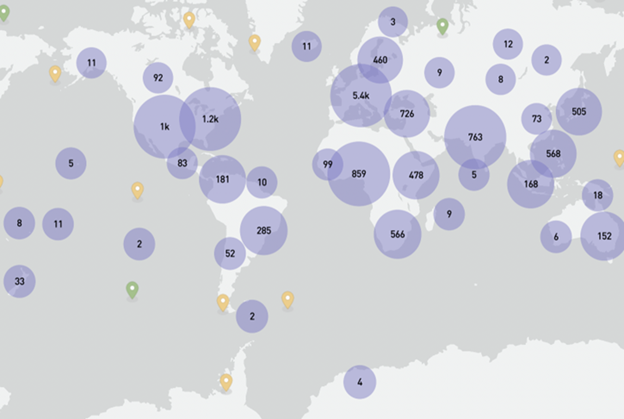
Ukraine, Nigeria, Turkey, And Other Disinformation
Cyabra’s experts scanned Twitter communities that took part in the conversation and analyzed the online behavior, connections and messaging of the interacting profiles. Of the 4,742 profiles scanned, Cyabra found 2,953 inauthentic profiles (4.31%). While this doesn’t seem like much, on average, inauthentic communities spread more negative content compared to authentic ones, and some inauthentic profiles have had a large impact on the discourse.
Three topics trended highest in those inauthentic conversations:
- NATO’s reluctance to help Ukraine
- Support of Turkey’s veto preventing Sweden and Finland from joining NATO
- The unwanted American / NATO involvement in North Africa
As the week progressed, the third topic became the one drawing the most interactions, as discourse emanating from north African profiles claimed the US and NATO were intentionally preventing African Arab countries from becoming the United States of Africa. By then, the discourse spread by inauthentic profiles was already largely discussed by authentic communities, while the sentiment remained negative.
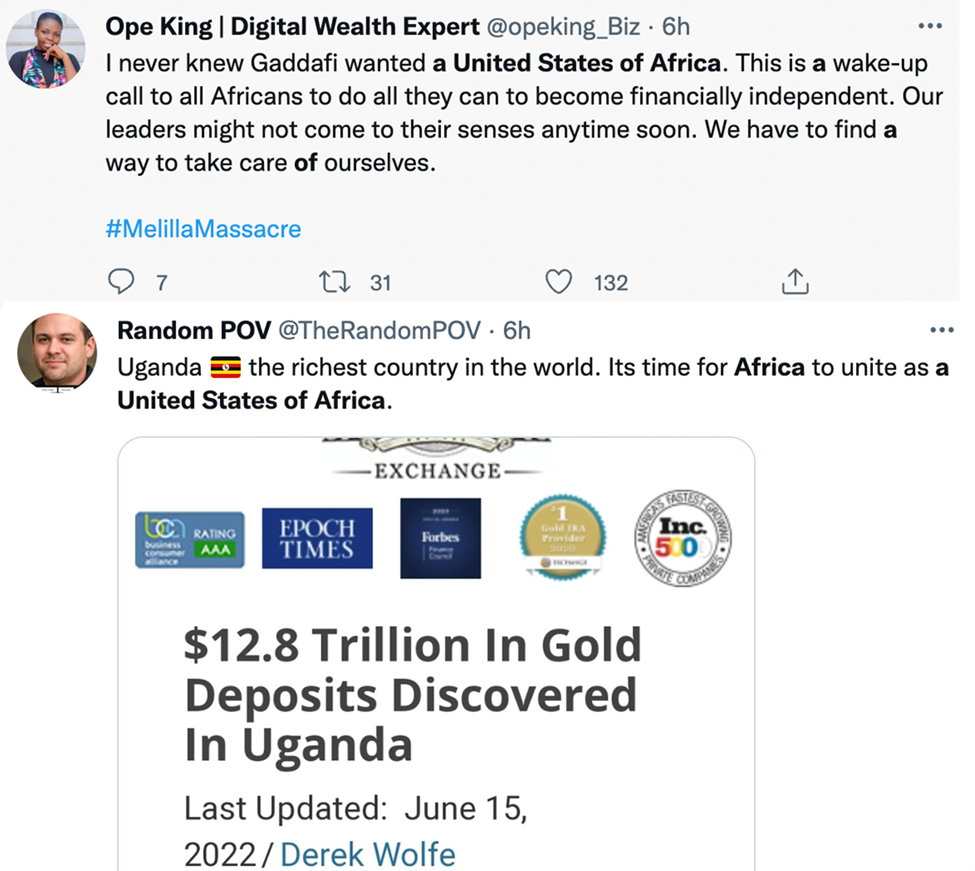
A smaller but similar negative discourse spread around Sweden’s and Finland’s application to join NATO. The only NATO member to raise objections was Turkey, and their grievances were complicated and rooted in years of mistrust and violent history. Here, too, Inauthentic profiles affected the discussion while spreading disinformation.
Unlike inauthentic profiles’ activity, the most significant interaction among top authentic users was “like”, followed by “share”, and finally creating original content (comment).
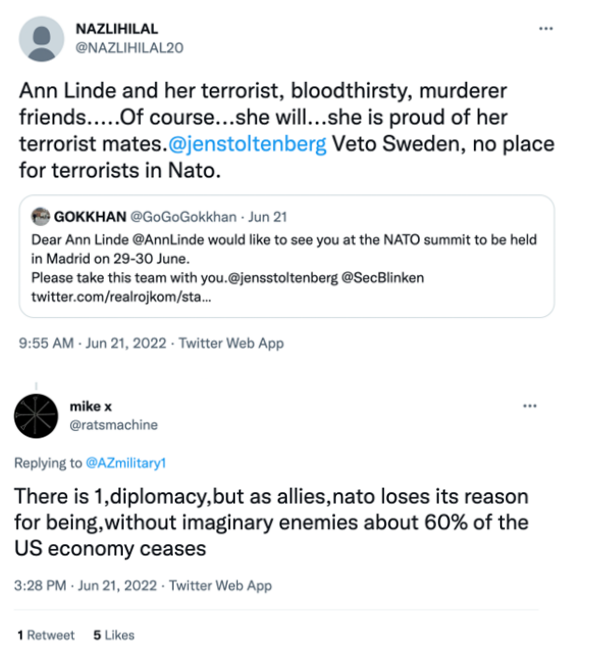
A Summit Under Social Flames
A week after Cyabra’s scan, when the summit actually started, it wasn’t immediately trending. The first mentions that regarded it on social networks were neutral, focused on the ironic popularity of the “Russian Salad” dish in the summit’s cafe. But as the summit progressed, conversations moved from the amusing anecdote to discourse of quite the same nature as we’ve seen before the summit started: criticism towards NATO’s non-involvement in Ukraine, towards NATO’s involvement in north Africa, and towards Turkey when it finally conceded and allowed Sweden and Finland to join NATO.
Political reports might have not been surprised by any of NATO’s decisions at the summit, as they followed the same policies as always. But in social networks, where the flames of negative discourse have already been spread, the fire kept raging on, uncontrolled.
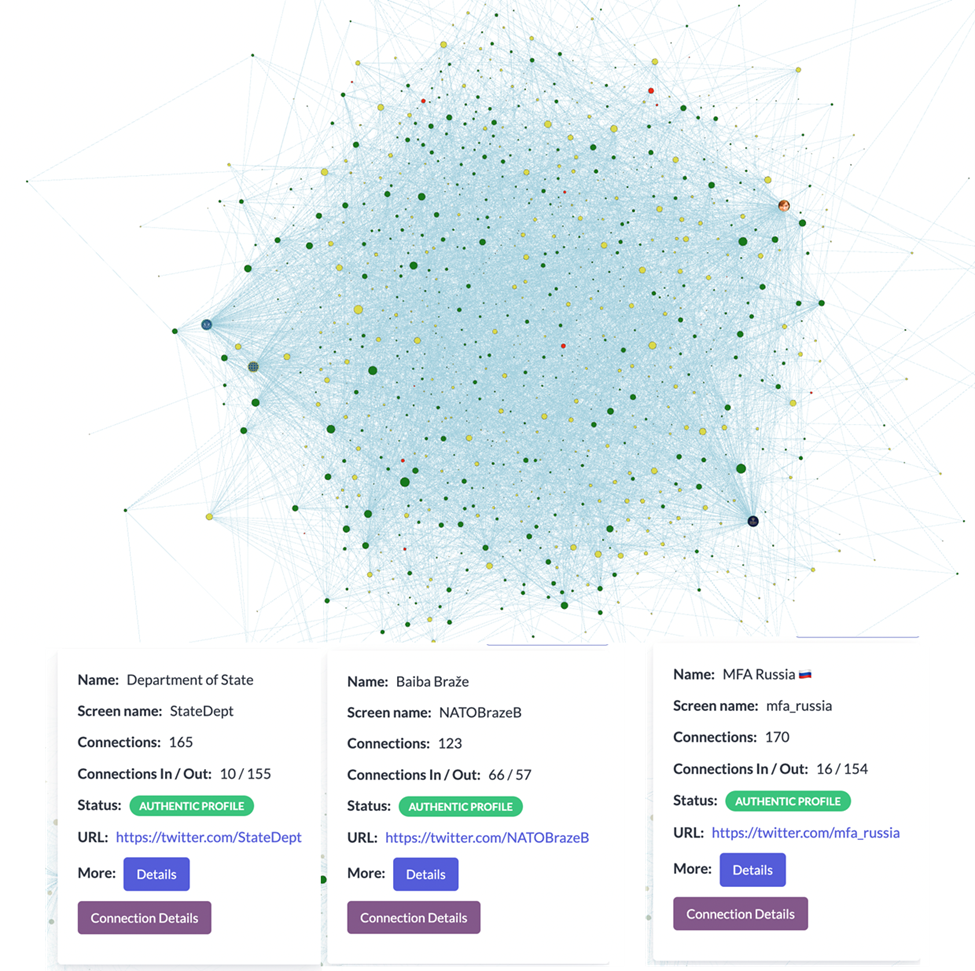
_______
The data in this article has been analyzed by Cyabra’s platform over a period of one week (06/21/22-06/25/29). The scan included 68,418 profiles.
Interested in the full report? Contact us.


